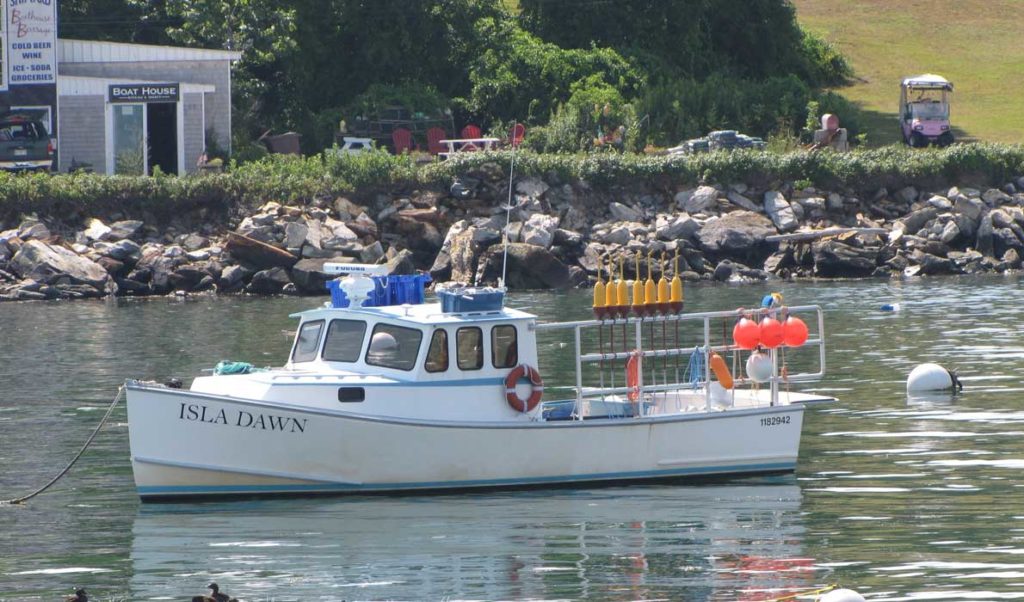Reflections is a monthly column written by Island Fellows, recent college grads who do community service work on Maine islands and in remote coastal communities through the Island Institute, publisher of The Working Waterfront. Erin Love works on Long Island with the Casco Bay Estuary Partnership and other Casco Bay island communities to address common environmental challenges.
As my time on Long Island comes to a close, I have been thinking about what the experience of living in this tiny, quirky, beautiful place for two years has meant to me.
Saying goodbye to people or places we care about is a privilege. Often they slip away before we get to tell them how much we care about them. So when I have an opportunity to show gratitude for a meaningful experience, I have learned to take it.
Long Island will always be the place I started to “adult.” A quick note on “adulting” for those unfamiliar with the term: It is the act of behaving like a capable, mature person, whether or not one feels like such a person. Here it is in a sentence: If at 3 in the afternoon I realize all I have eaten for breakfast and lunch is three chocolate chip muffins and some chips and salsa, I have failed at adulting for the day.
True to form, we millennials have taken an idea that is many decades old, given it a catchy name, dispersed it via social media, and claimed credit for inventing the whole concept.
The thing about adulting is that it’s relative. What qualifies as adulting changes, based on where you live and with whom you interact. And let me tell you, when you live on an island, you are adulting in the big leagues. Keep in mind that this assessment is coming from someone who used a CD case as an ice scraper (not adulting) the first two years she drove a car in Maine. So take it with as many grains of salt as you like.

Erin Love
When you live on an island, a task as simple as buying food requires forethought and logistical prowess, sure signs of adulting. Going from eating college dining hall fare that required no effort beyond choosing a pre-loaded plate, to shopping for a week’s worth of groceries all at once took some adjustment. I am now quite proud of my well-calibrated grocery store mental calculator.
The trade-off between the fresh food I need for the week, the staples I need to stock up on, and the amount of either I can carry in shopping bags onto the ferry is a delicate balance. (Rule of thumb: buy bulky or heavy items like sugar, oil, toilet paper and dish soap on separate weeks.)
Like I said, adulting is relative. This spring when I discovered that, no, leftover fruit salad does not make a lovely sangria, I kept that information to myself. (Pro tip: never mix banana with chianti.) Gaining such pearls of wisdom may qualify as adulting when you are sharing an apartment with other 20-somethings, together with learning how to file taxes and make vegan stir-fry. But it does not pass muster in a place where changing a flat tire is as common knowledge as changing a light bulb.
At this point you may have guessed that I am a proponent of trial by fire. Use that CD case. Buy that 10-pound bag of flour. Taste that sangria. And adjust. Maybe try something different next time. At the risk of portraying myself as a truly incompetent human, I have shared some unflattering details about my life here.
But the point I would like to make is that in a small community, you are held accountable for being your best self. Not by a fear of being chastised for doing something the wrong way, but through a desire to measure up to the people you admire in your life.
I am surrounded by fabulous adulting role models on Long Island. My thanks goes to every single person who makes the community here what it is. Life is a learning experience, and I am lucky to have neighbors who let me make valuable mistakes and, through their example, encourage me to adult to the best of my ability.





